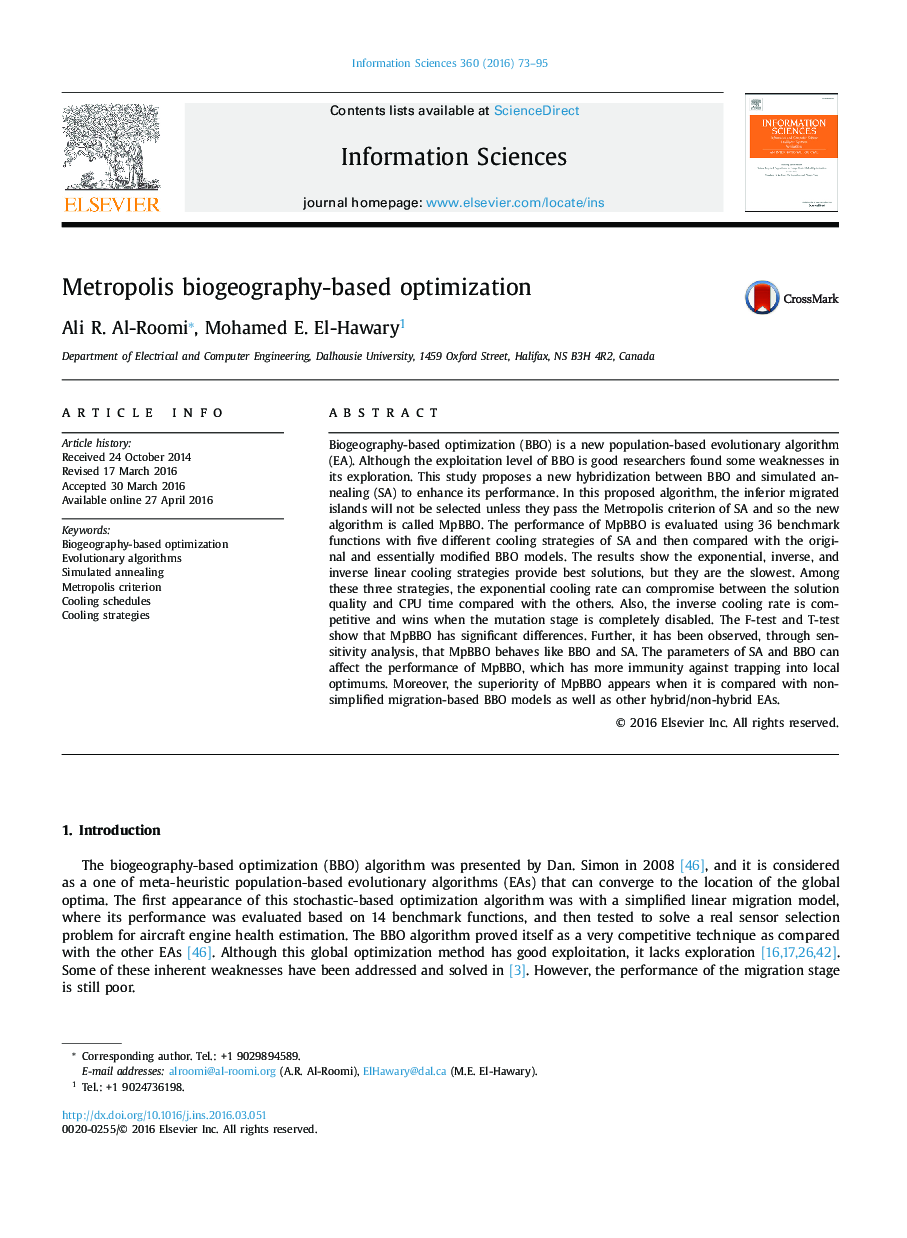| Article ID | Journal | Published Year | Pages | File Type |
|---|---|---|---|---|
| 391478 | Information Sciences | 2016 | 23 Pages |
Biogeography-based optimization (BBO) is a new population-based evolutionary algorithm (EA). Although the exploitation level of BBO is good researchers found some weaknesses in its exploration. This study proposes a new hybridization between BBO and simulated annealing (SA) to enhance its performance. In this proposed algorithm, the inferior migrated islands will not be selected unless they pass the Metropolis criterion of SA and so the new algorithm is called MpBBO. The performance of MpBBO is evaluated using 36 benchmark functions with five different cooling strategies of SA and then compared with the original and essentially modified BBO models. The results show the exponential, inverse, and inverse linear cooling strategies provide best solutions, but they are the slowest. Among these three strategies, the exponential cooling rate can compromise between the solution quality and CPU time compared with the others. Also, the inverse cooling rate is competitive and wins when the mutation stage is completely disabled. The F-test and T-test show that MpBBO has significant differences. Further, it has been observed, through sensitivity analysis, that MpBBO behaves like BBO and SA. The parameters of SA and BBO can affect the performance of MpBBO, which has more immunity against trapping into local optimums. Moreover, the superiority of MpBBO appears when it is compared with non-simplified migration-based BBO models as well as other hybrid/non-hybrid EAs.
